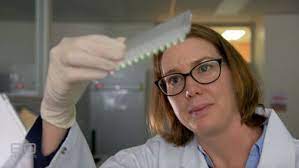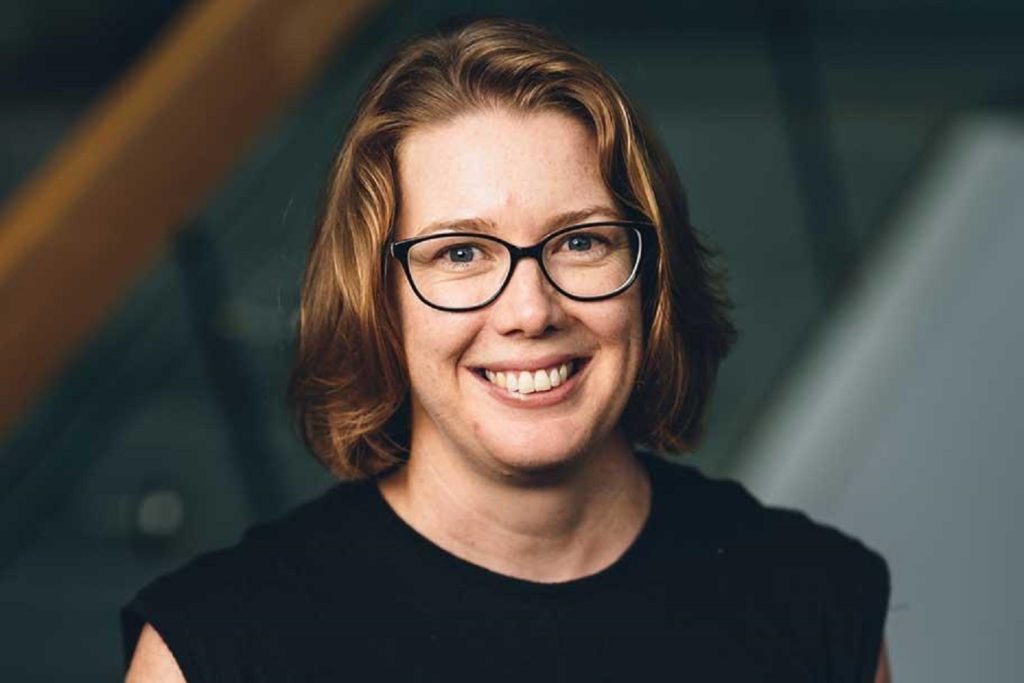Dr. Rebecca Rockett is an emerging leader in public health genomics, determined to improve the detection and treatment of existing and emerging, high burden infectious diseases such as Covid-19.
As a Senior Research Fellow at the Centre for Infectious Diseases and Microbiology- Public Health and a member of the Sydney Institute for Infectious Diseases at the University of Sydney, Dr. Rockett’s research focuses on utilising pathogen genomics to limit infectious disease outbreaks and improve treatments for a range of existing and emerging pathogens.
With the research that her team gathered through the study of the genomic DNA of Covid-19, governments have been able to test whether outbreaks of the virus are related. This information has been vital to successful contact-tracing efforts and Dr. Rockett is proud her team can make such a meaningful contribution to fighting the pandemic.
Dr Rockett has made her mark in the research world as the author of more than 40 peer reviewed articles with more than 2000 citations, including leading research published in Nature Medicine, New England Journal of Medicine and Nature Communication.
In 2015, she was awarded her PhD from the University of Queensland for which she gained a Dean’s Award for Research Excellence. And as a testament to her prowess in virology, she’s received the backing of $4.1 million of competitive grant funding for research and has appeared as an expert commentator on ABC News, The Conversation and 60 minutes.
As part of an upcoming event with Franklin Women called, Women in Leadership and the Covid-19 Response, Dr Rockett will be in conversation with Women’s Agenda co-founder, Angela Priestly, to reflect upon the last 2 years and how her leadership was called upon.
Here, Dr Rockett shares the most rewarding parts of her research contributions to Covid-19 contact tracing, the importance of scientific communication and her advice to women in STEM leadership.

How has your work creating genomic testing contributed to the COVID-19 contact tracing efforts in Australia?
The unbiased nature of genomics is incredibly useful to supplement contract tracing information. As many cases find it difficult to recall all the venues they have visited in the last 10 days, there may also be difficulties contacting cases or a reluctance to provide this information.
However, when genomics links two or more cases together it can generate new hypotheses regarding how a particular case contracted their infection. For example, during the northern beaches outbreak, most of the cases were confined to people living within the Northern Beaches.
We were asked to urgently sequence some cases that had contracted COVID-19 but had no contact or exposure with people from this area and these new cases resided in Southwestern Sydney. The concern was that there was cryptic transmission (undetected cases) in the community and therefore the outbreak may be spreading throughout Sydney. It was also days before Christmas and public health authorities needed to decide if further restrictions were needed to prevent large gatherings over the Christmas period.
The viral genomics demonstrated that this was a new cluster of cases unrelated to the Northern beaches outbreak but identical to cases we have detected some days earlier in airport staff members. Therefore, it was a new importation and based on the timing between the linked and new cases that had only recently occurred, this enabled a targeted public health response and the ability to rapidly test contacts of the new outbreak.
What has been most rewarding about having such a pivotal role in genomic sequencing of the COVID-19 virus and developing testing platforms?
Rarely in research do we have the opportunity to translate our ideas rapidly. So, it was incredibly rewarding to translate a research protocol into a public health surveillance system in a matter of months. The new level of interaction with epidemiologists at the NSW Ministry of Health also enabled us to understand how our results were assisting them in controlling outbreaks.
In what ways did you see women’s leadership in the Australian COVID-19 response become vital to better community health outcomes?
I’ve really been inspired over the past three years by just how many of the trusted voices across Australia on COVID-19 have been women. From health leaders such as Kerry Chant, Jeanette Young, and Nicola Spurrier, to the expert media commentary from Mary Louise McLaws, Kristine Macartney and many other academic leaders and experts, Australians really turned to women in this time of crisis. It may be a bit of a stereotype, but the calm, rational and open level of communication delivered by so many women leaders made such an impact in establishing trust with the public during COVID.
What were some of the biggest challenges you faced as a woman in leadership during the pandemic and what enabled you to navigate through them?
Scientific communication is an important part of my career, although prior to the pandemic most communication was to a scientific audience. I found it very confronting and challenging to communicate to news media, with often only a few minutes to prepare. The intense and sudden interest in our work was fantastic on a professional level, but it was also difficult to adjust to a new level of scrutiny.
Have you seen the pandemic change typical leadership hierarchies for women who want to have their innovative ideas heard and acted upon?
Yes, I think action was required so quickly and these ideas were often communicated without going through traditional channels. I believe women, potentially particularly in science are the workhorses and are solving problems behind the scenes.
While making big impacts for the Australian COVID response as a lab scientist, what steps, if any, have you taken to prioritise your own health and wellbeing?
I think it was a very uncertain time for everyone. For me, I tried to make time for things that I love and help me unwind, such as running, cooking and yoga.
What have you learned about yourself and your leadership style over the past couple years?
I have gained confidence in myself and my scientific abilities. Research is often a very negative space; we all get numerous papers and grant rejections, and our experiments fail. So, it was great to have our research championed and receive positive feedback about the utility of our surveillance system.
What advice would you give other women looking to push past stereotypes and become leaders in the health and medical research sector?
Don’t be afraid to fail and put yourself and your ideas out there.


